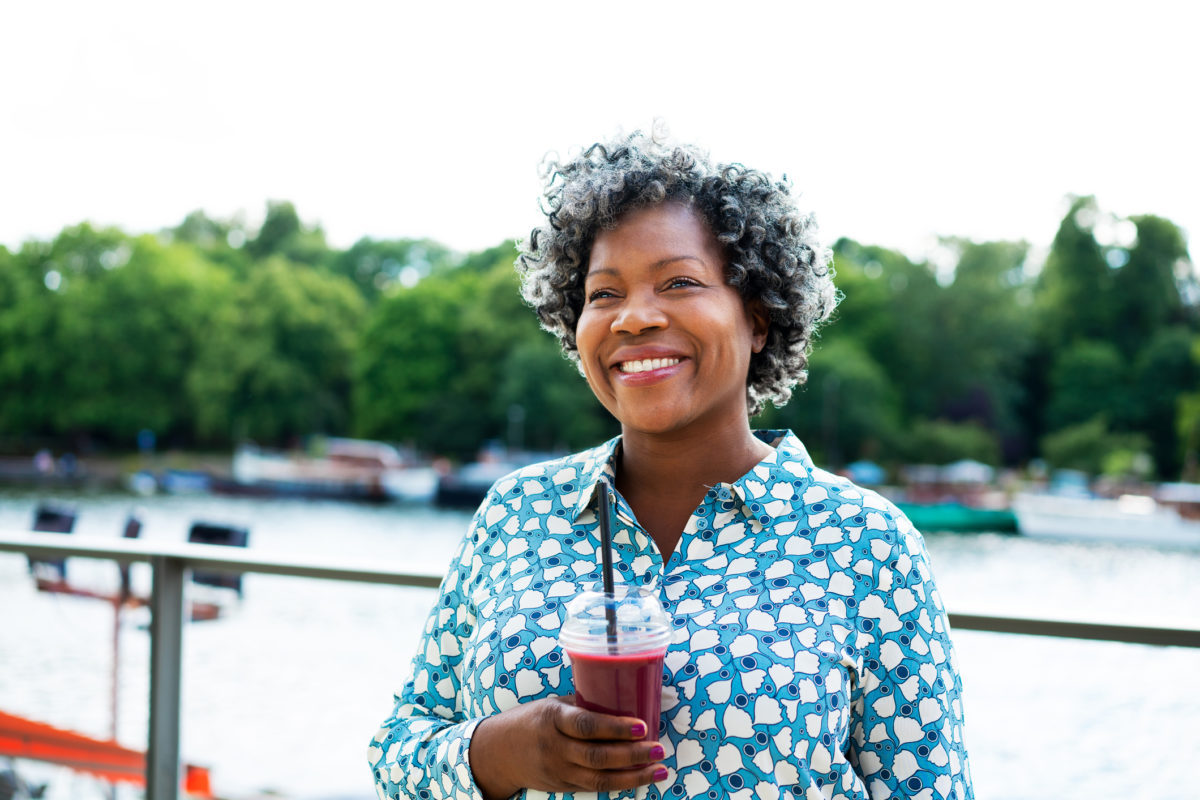Healthy eating is an important part of caring for yourself during menopause. It gives your body nutrients you need, like calcium and vitamin D and helps you stay at a healthy weight. And healthy eating can reduce your risk for health problems that are more common after menopause, such as heart disease and osteoporosis.
>> SIGN UP TODAY!.
What should I eat?
Whew! Hot Flashes
While there is no magic potion to relieve menopausal hot flashes, being active and eating well can help. Speak with your health care provider about:
- Adding sources of omega-3, including fatty fish, flax, hemp and chia.
- Adding plant-based foods with isoflavones, such as soy and tofu.
- Avoiding “trigger foods” like spicy foods caffeine and alcohol.
Eat a heart-healthy diet. Choose foods like vegetables, fruits, nuts, beans, fish, and whole grains. Limit foods that have a lot of salt, fat, and sugar.
Choose foods high in calcium. These include milk, cheese, yogurt, and calcium-fortified orange juice, soy milk, and tofu. Other sources of calcium include canned sardines, canned salmon with bones, and leafy green vegetables such as broccoli, kale, and Chinese cabbage. Between the ages of 19 and 50, you need 1,000 milligrams (mg) of calcium a day. At 51 and older, you need 1,200 mg a day.
Eat foods that are good sources of vitamin D. Vitamin D helps your body use calcium. Foods that have vitamin D include salmon, tuna, and mackerel. Vitamin D-fortified foods like milk, soy milk, orange juice, and cereal are also good sources. Note that:
- Women under age 50 need 400- 800 IU daily.
- Women 50 and Older need 800-1,000 IU daily.
- Most people need vitamin D supplements to get enough to support bone health.
Talk to your doctor about taking a calcium supplement and a vitamin D supplement.
To find a ChristianaCare gynecologist, call 302-623-4175.
To schedule an appointment for one-on-one nutritional counseling at ChristianaCare, call 302-623-3053.
What should I avoid?
Limit caffeine. Caffeine can cause sleep problems. It can also make you feel anxious. If you are bothered by symptoms like these, pay attention to how much caffeine you are taking in. Caffeine is found in coffee, tea, energy drinks, and foods and drinks that contain chocolate.
Limit your intake of alcohol. Drinking may make menopause symptoms worse.
Why am I gaining weight?
Weight gain during menopause is often considered part of menopause itself, but it is mostly due to a decline in metabolic rate – how well your body burns energy — associated with aging. The good news? You can work around these changes.
- Stay physically active.
- Eat lean meat and keep portion size to the palm of your hand.
- Increase half of your plate to non-starchy vegetables.
- Consider increasing plant-based meals.
- Try not to skip meals.
- Avoid spicy foods.
- Limit sugar and salt.
- Refrain from caffeine and alcohol 3 to 6 hours before bed.
- Eat slowly and enjoy your food.
Talk to your health care provider about eating well and staying active as you transition through this stage of life. Your health care provider and a nutritionist can be great partners during menopause.



